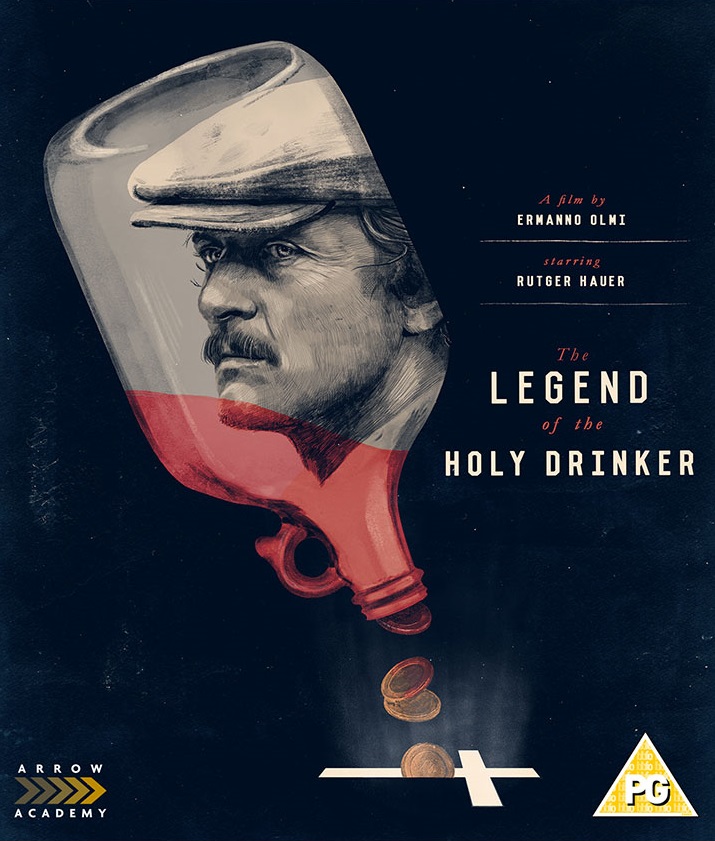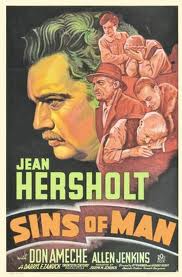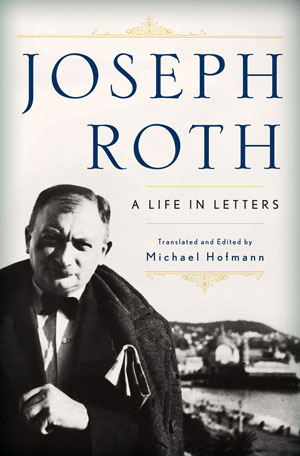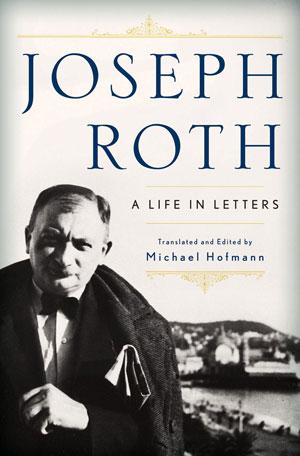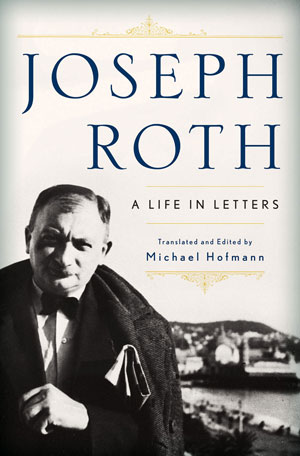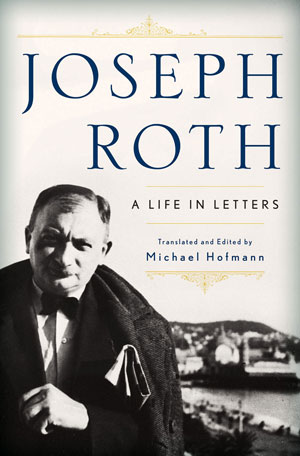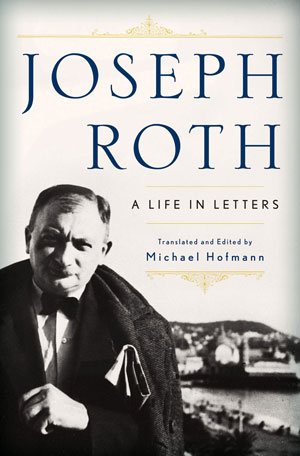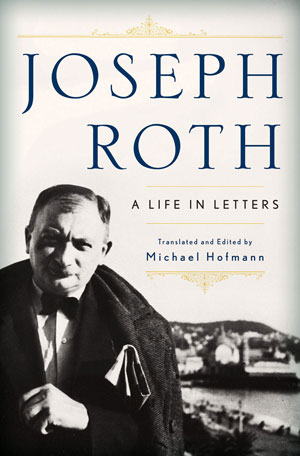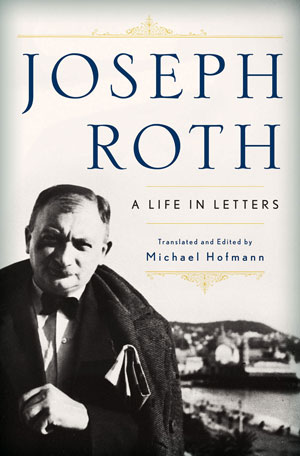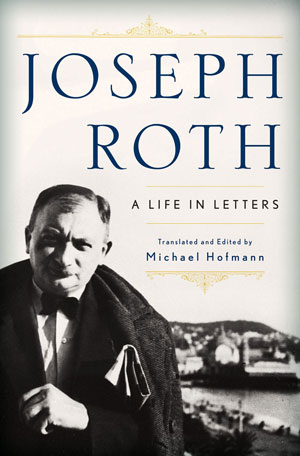I just noticed that Legend of the Holy Drinker, based on Joseph Roth’s novella, is available to view for free on Amazon Prime. I loved Roth’s story and found this movie version with Rutger Hauer very well done. In one of his letters, Joseph Roth wrote, “There are miracles in my life, poor little miracles, […]
Tag: Joseph Roth
Freely adapted from “Job,” the novel by Joseph Roth, “Sins of Man” is a thoroughly sentimental, painstakingly somber and devastatingly complete portrait of a man in sorrow. While it is uncompromisingly tearful, it happens also to have been splendidly performed, honestly directed and handsomely produced. In sum, a well-planned conspiracy against the lachrymal duct which […]
Joseph Roth: A Life in Letters Translated and Edited by Michael Hofmann W. W. Norton & Company, Hardcover, 512 pages ISBN-10: 0393060640 / ISBN-13: 978-0393060645 Albert Einstein to B. W. Huebsch (24 February 1935) Esteemed Mr. Hübsch, I am truly grateful to you for sending me this consoling book [Job] by a real mensch and […]
From Joseph Roth: A Life in Letters, translated and edited by Michael Hofmann. The last few years of Roth’s life saw many of the same themes as already posted, and some extended thoughts on these subjects: • A lot of talk of politics and how many, especially “those who embodied the ‘word’s conscience’ were themselves […]
From Joseph Roth: A Life in Letters, translated and edited by Michael Hofmann. Once again I provide too many excerpts, but I’m finding Roth a fascinating figure. The uprising by the Social Democrats in Austria (12 February 1934) and the resulting Dollfuss dictatorship discourages Roth in a manner more than he had been in previous […]
From Joseph Roth: A Life in Letters, translated and edited by Michael Hofmann. I’m including too many excerpts from this year but it seems to mark a clear change in Roth, or perhaps an acceleration in his downward spiral tied to his despair. He was perceptive on the dangers Nazism posed for Germany and Europe. […]
From Joseph Roth: A Life in Letters, translated and edited by Michael Hofmann. The letters from this period covers much of the same material as in the previous post. During this period he wrote The Radetzky March, although how he did so in his circumstance is amazing—taking care of his sick wife, scrambling for money, […]
From Joseph Roth: A Life in Letters, translated and edited by Michael Hofmann. Michael Hoffman makes the observation that Roth “in those days was like an open knife, a mixture of prophet, revolutionary, and sociopath”. The bluntness he exhibits with his friends shows an honesty that often wanders into just being a jerk. Major topics […]
I finally had some time to start Joseph Roth: A Life in Letters, translated and edited by Michael Hofmann. The young Roth sounds so…so…young, something that doesn’t come through in any of his work I’ve read so far. I’ll quote from some of his letters as they strike me, even if they are as inconsequential […]
I know what I’ll be leafing through at work today. I’m sure I’ll be posting some excerpts over the next week. If you’re interested in Roth, be sure to check out the book excerpt at The New Yorker, which includes ten letters from the book. Paul Raymont at Philosophy, lit, etc. has more links at […]
Imagine my surprise to find that there is a marvelous movie version of Joseph Roth’s novella The Legend of the Holy Drinker (IMDb link). Rutger Hauer does a wonderful job as Andreas and director Ermanno Olmi allows the story to unfold at a natural pace, letting the viewer see the impact on Andreas of the […]
There is really nothing that people get used to so readily as miracles, once they have experienced them two or three times. Yes! In fact, such is human nature that people begin to feel betrayed when they don’t keep getting all those things that a chance and fleeting circumstance once bestowed on them. People are […]
From my first post on the book: Joseph Roth’s The Radetzky March traces the history of the Trotta family across three generations. The grandfather, Joseph, saved Emperor Franz Joseph’s life at the Battle of Solferino, an act that helps and haunts the family across the years. The novel parallels and intertwines the connection between sons […]
Most of these orders pertained to the evacuation of villages and town and the treatment of pro-Russian Ukrainians, clerics, and spies. Hasty court-martials in villages passed hasty sentences. Secret informers delivered unverifiable reports on peasants, Orthodox priests, teachers, photographers, officials. There was no time. The army had to retreat swiftly but also punish the traitors […]
Continuing some short quotes until I have time for more… The heart of The Radetzky March focuses on the relationship between fathers and sons, expanding that connection when looking at similar associations like emperor/subject or soldier/orderly. Onufrij, a peasant from the eastern border, is Carl Joseph’s orderly in pre-World War I Austria-Hungary. Onufrij’s devotion lies […]
I didn’t mean to completely disappear but August and September will be demanding beyond usual limit-pushing levels. For now I’ll post a few quotes over the next couple of days from Joseph Roth’s remarkable work. From Part Three, translation by Joachim Neugroschel (pages 247-248): Frau von Taussig stood on the platform in North Station. Twenty […]
I read two translations of The Radetzky March, The Overlook Press edition with translation by Joachim Neugroschel, which I’ve been using in my posts, and Granta Publication’s edition with translation by Michael Hofmann. I wanted to provide a few short quotes from both versions to give a flavor of their differences and similarities. Here are […]
A few notes and some additional quotes (all from the translation by Joachim Neugroschel). I wanted to highlight a few things before moving on to Part Three. Roth tends to overemphasize the impending destruction from World War I, as in the case of describing a visit of Russian and Austrian officers. Even with this overemphasis, […]
As I mentioned in an earlier post, the themes and motifs in Part Two develop those listed in Part One. I love Roth’s style so I’ll make liberal use of quotes again (from the translation by Joachim Neugroschel) in looking at three new characters in this section. Count Wojciech Chojnicki: “one of the richest Polish […]
I want to highlight some quotes (all quotes are from the translation by Joachim Neugroschel) from this section since the themes I outlined in the post on Part One continue in Part Two. I’ll go into detail on some of the themes and motifs of Part Two in a separate post. While the following quotes […]
